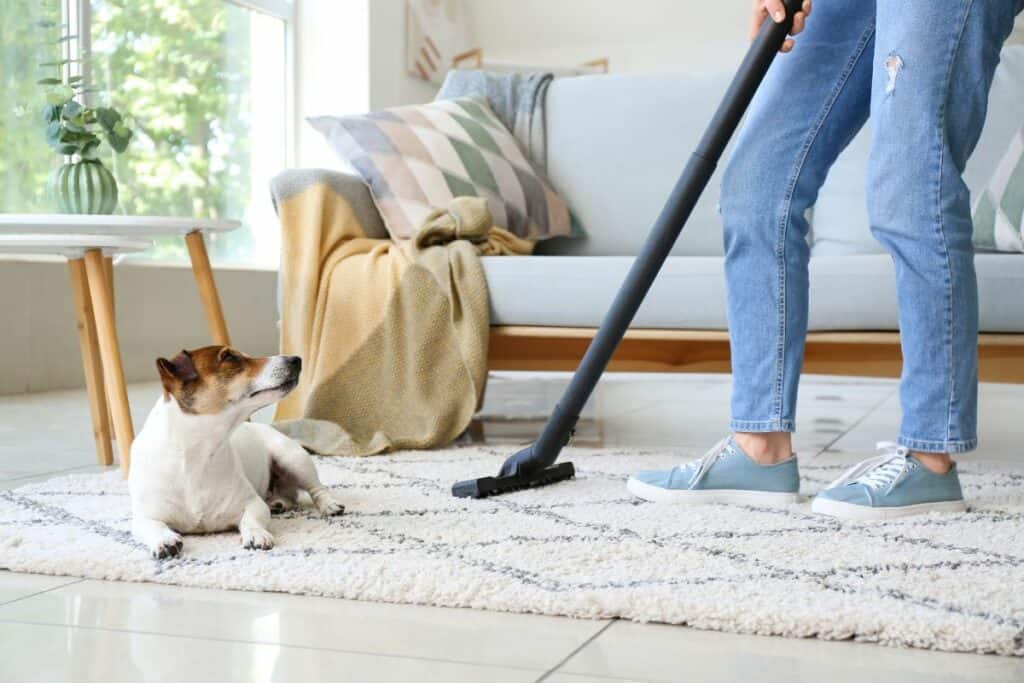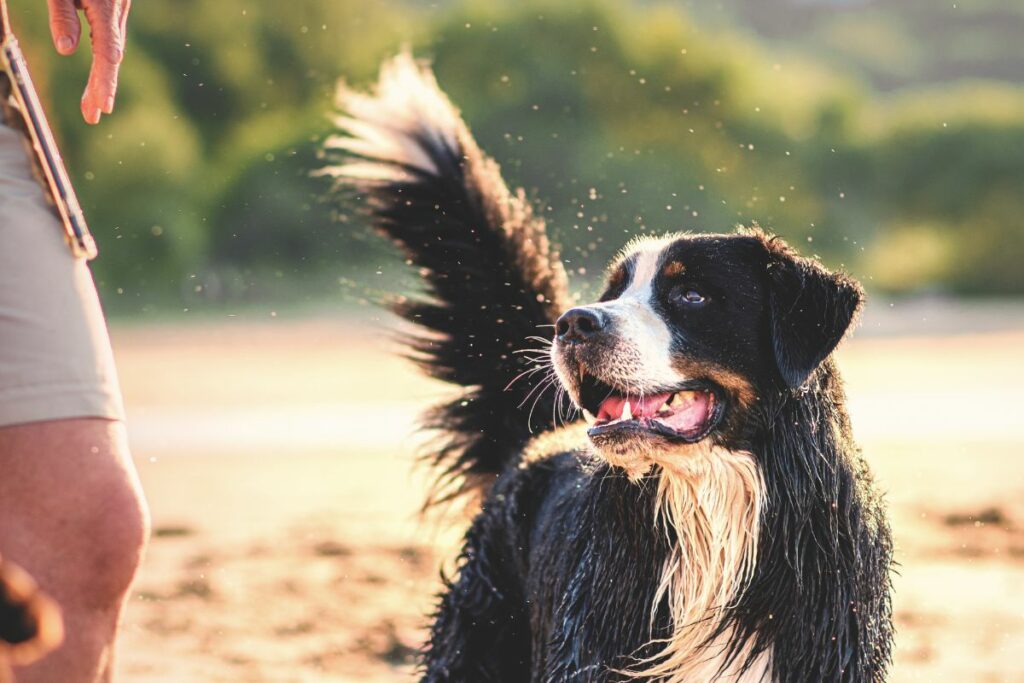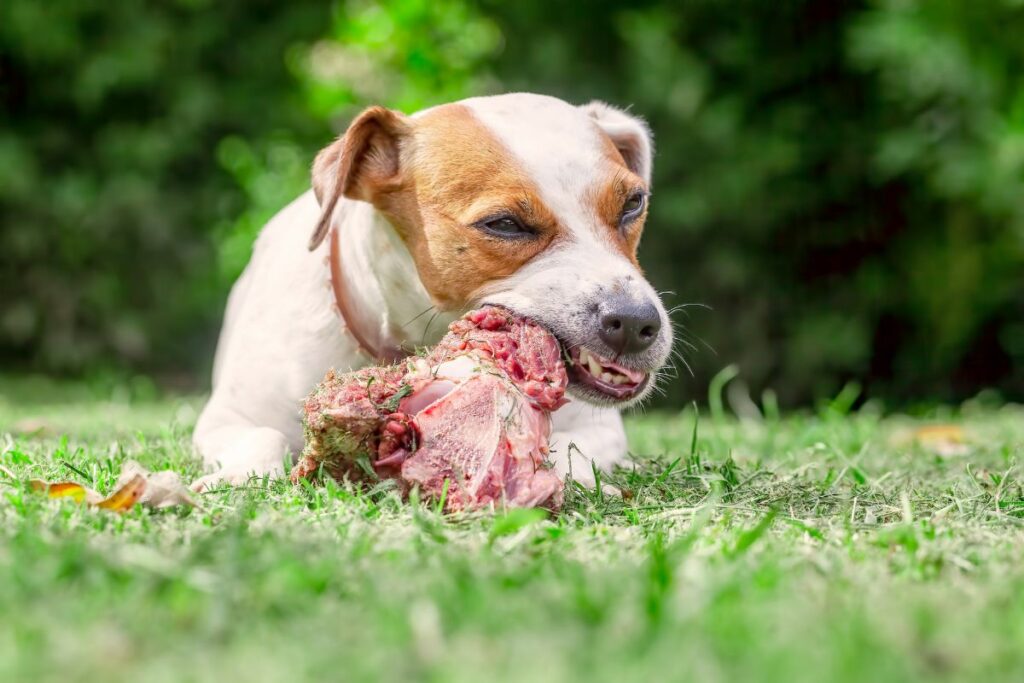In this comprehensive guide on how to socialize a dog, I will share essential tips and strategies for ensuring your canine companion becomes well-adjusted and sociable. I'll cover the importance of socialization, key elements of the process, practical steps to socialize your dog effectively, and how to overcome specific challenges like fearfulness or aggression. Stay tuned for expert advice and actionable insights to help your dog thrive in various environments and interactions.
What is Dog Socialization?
Dog socialization is more than just introducing your dog to other animals and people. It is the process of exposing your dog to various environments, objects, and situations to help them develop positive behaviors and coping skills. Socialization lays the foundation for a confident and well-mannered dog. It helps prevent behavior problems such as fearfulness, aggression, and anxiety. Proper socialization also contributes to better communication between dogs and their human families.
The process is most crucial for puppies but applies to dogs of all ages. The ideal time to work on socialization skills is during a dog’s socialization window, typically from about 3 weeks to 16 weeks of age, although dogs can continue to learn and adapt throughout their lives.
Key Elements of Dog Socialization
For Puppies
Early socialization is key. Puppies are most receptive to new experiences during the critical socialization window. During this time, I encourage new puppy owners to introduce their pups to a variety of environments, people, and other animals. Positive exposure during this phase helps prevent fearfulness and aggression later on.
A structured socialization plan is essential. I recommend using a puppy socialization checklist of experiences you want your dog to encounter. Start with gentle exposures and gradually increase the complexity of the interactions. This might include introducing your dog to different surfaces (like grass, pavement, and sand), various sounds (such as vacuum cleaners and doorbells), and people of all ages and appearances.
For Dogs 1 Year or Older
For older dogs that were never socialized or who have anti-social tendencies, socialization may look a little different. It is important to differentiate between a dog who has never been exposed to a stimuli or environment and one who has been exposed but had a negative experience. Socialization is a proactive approach to prevent negative associations or experiences and you can follow this guide to socialize your dog. For dogs who are anxious, reactive, or aggressive, socialization may not be the right focus. I recommend exploring tools to overcome reactivity or looking into how to counter condition and desensitize a dog who deals with fear.
How to Socialize Your Dog: 5 Expert Tips
Here's a breakdown of effective methods to ensure your canine companion becomes confident and friendly in various situations:
1. Controlled Interactions
Start by introducing your dog to controlled interactions with people and other animals in a safe environment. Invite friends or family members over to meet your dog, ensuring they approach calmly and respectfully. Use positive reinforcement, such as treats and praise, to reward your dog's calm behavior during these interactions. Gradually increase the complexity of these interactions as your dog becomes more comfortable.
2. Exposure to Different Environments
Expose your dog to a variety of environments to broaden their comfort zone. Take them for walks in parks, busy streets, and pet-friendly stores. Experiencing different sights, sounds, and smells will help your dog feel at ease in new places. Start with quieter areas and gradually progress to more bustling environments, always monitoring your dog's comfort level.
3. Puppy Socialization Classes
For puppies, you can enroll in a reputable puppy socialization class led by experienced trainers. These classes provide structured opportunities for puppies to interact with other dogs and people in a controlled setting. Your puppy will learn valuable social skills and gain confidence through positive interactions with their peers.
Pro Tip: Look for classes that emphasize positive reinforcement techniques and proper puppy play etiquette.
4. Positive Reinforcement Techniques
Use positive reinforcement to encourage desirable social behaviors in your dog. Whenever your dog displays friendly and calm behavior towards new experiences, reward them with treats, toys, or verbal praise. Positive reinforcement creates positive associations with socialization, making your dog more receptive to new encounters and reducing fear or anxiety.
5. Monitor Body Language
Pay close attention to your dog's body language during socialization. Learn to recognize signs of stress, fear, or discomfort, such as a tucked tail, panting excessively, or attempting to retreat. If you notice any signs of distress, remove your dog from the situation and try a gentler approach next time. Respect your dog's boundaries and never force them into uncomfortable interactions.
By incorporating these methods into your dog's socialization routine, you'll help them develop into a well-adjusted and sociable companion. Remember to be patient and consistent, allowing your dog to progress at their own pace. Socialization is an ongoing process that requires dedication, but the rewards of having a confident and friendly dog are priceless.
Socialization Checklist
A socialization checklist is a great way to cover all your bases. There are too many objects, noises, or environments to remember them all. For this reason, we put together a comprehensive socialization checklist to help you keep track of your dog’s progress. Get your copy today and start building confidence in your dog.
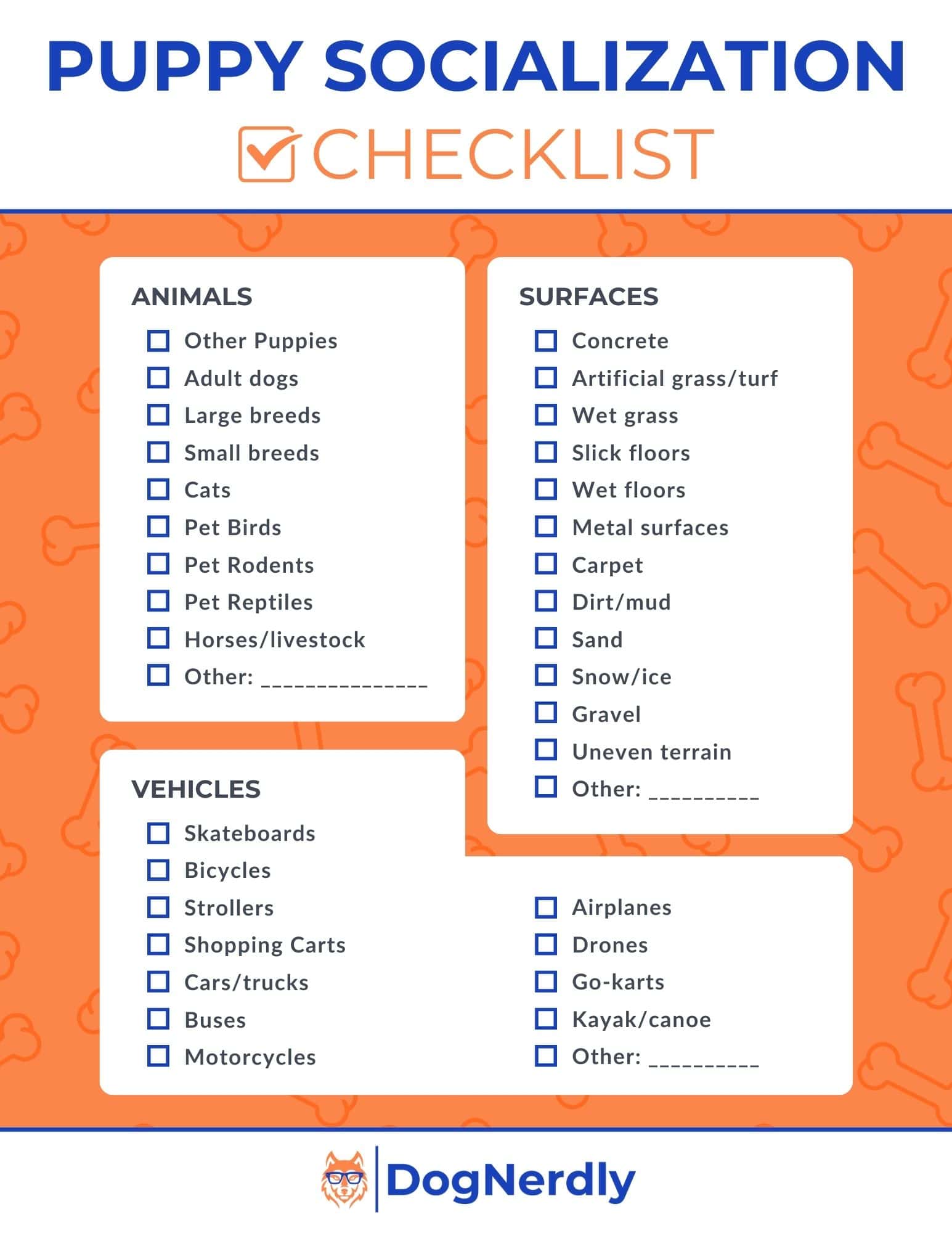
Get Your Free Copy!
Build a lifetime of confidence in your puppy with our comprehensive Puppy Socialization Checklist. This 5 page guide includes tips and tricks to maximize your efforts and 100+ items to introduce to your dog.
By submitting, you permit DogNerdly to send you promotional materials via email.
Frequently Asked Questions
Socializing an older dog requires patience. Start with low-stress interactions in controlled settings and gradually expose your dog to new experiences. Positive reinforcement is crucial to build confidence and trust.
No, dogs of all ages can benefit from socialization. While older dogs may take longer to adjust, they can still learn and adapt to new experiences. It is important to recognize the difference between socializing a dog to a new stimulus versus counter conditioning them to an already familiar negative stimulus. If your dog has a known fear, talk to a trainer about how to desensitize and counter-condition your dog.
If your dog shows reactive behavior towards other dogs, seek guidance from a professional trainer or behaviorist. Techniques such as desensitization and counter-conditioning can help modify this behavior over time.
Help your dog overcome fear of new people by exposing them gradually to calm and friendly individuals. Use treats and positive reinforcement to create positive associations. Avoid overwhelming your dog and let them approach new people at their own pace.
Puppy socialization classes are highly beneficial for young dogs to learn social skills and appropriate behavior. These classes provide structured environments for positive interactions with other puppies and people under expert supervision.
Key Takeaways
Mastering how to socialize a dog is essential for fostering a well-rounded and confident canine companion. By implementing a structured socialization plan that includes early exposure, controlled interactions, and positive reinforcement techniques, you can set your dog up for success. Remember to be patient and tailor the socialization process to your dog's individual needs. Through consistent efforts and guided experiences, you'll help your dog develop crucial social skills and behaviors that will benefit them for life. Start today and enjoy the journey of watching your dog flourish into a happy, social, and well-adjusted member of your family.
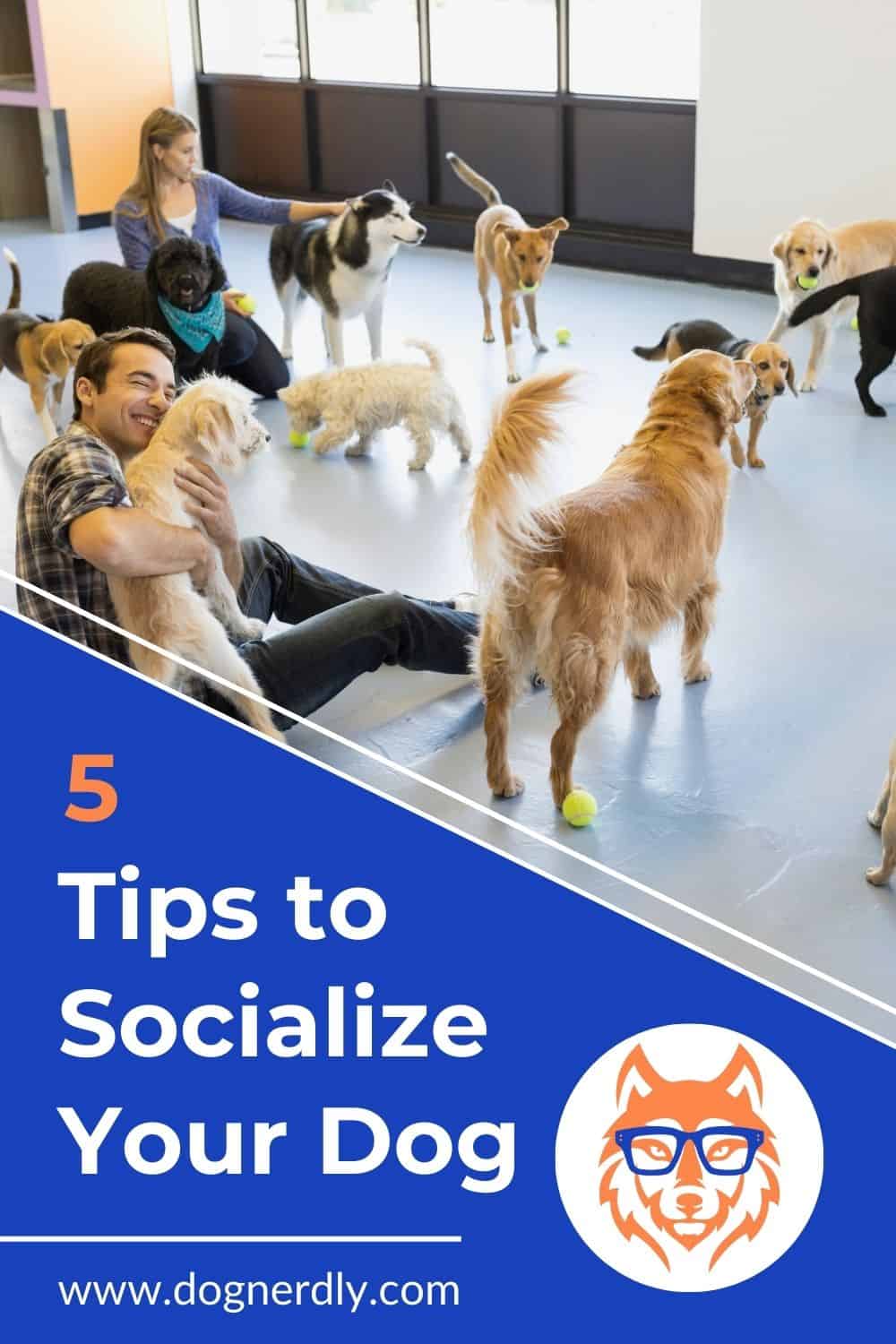
Joseph Schifano is the President of The Academy of Pet Careers and Founder of DogNerdly.
With over 20 years of professional pet experience, Joseph got his start as an owner/operator of a 7-figure, all-inclusive pet care business. From there, he purchased The Academy of Pet Careers with a hopes of improving the quality of care provided by industry professionals. This role allowed Joseph to rub shoulders with some of the biggest names in the industry, and gain knowledge in every aspect of pet care.
After witnessing the popularity of social media influencers and the amount of misinformation being taught to pet parents, Joseph decided to create DogNerdly. The goal was to provide science-backed education for the average dog nerd in order to create a world where dogs and humans can live a more harmonious and empowered lifestyle.
